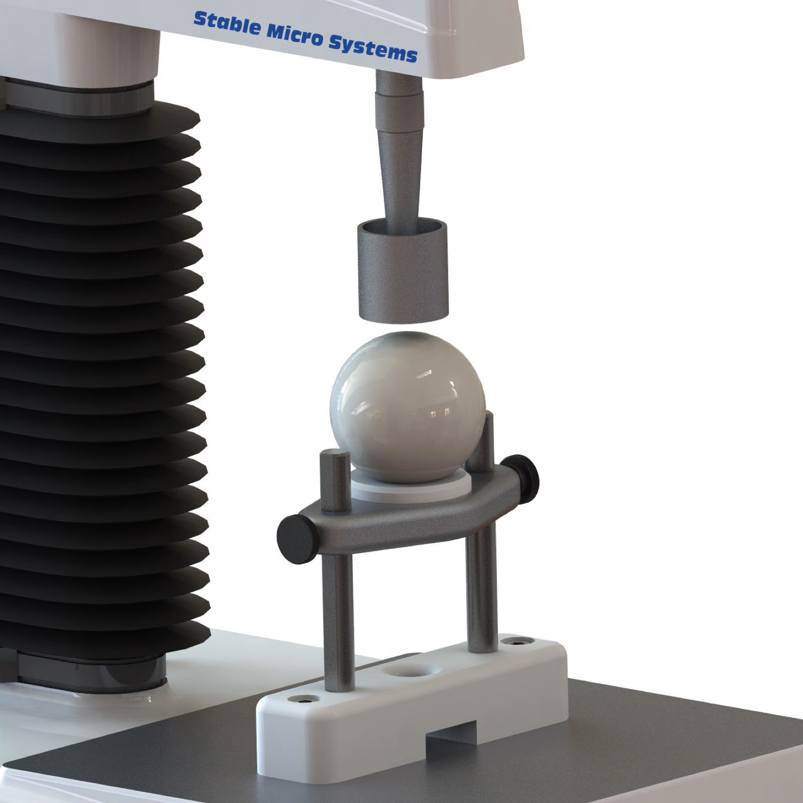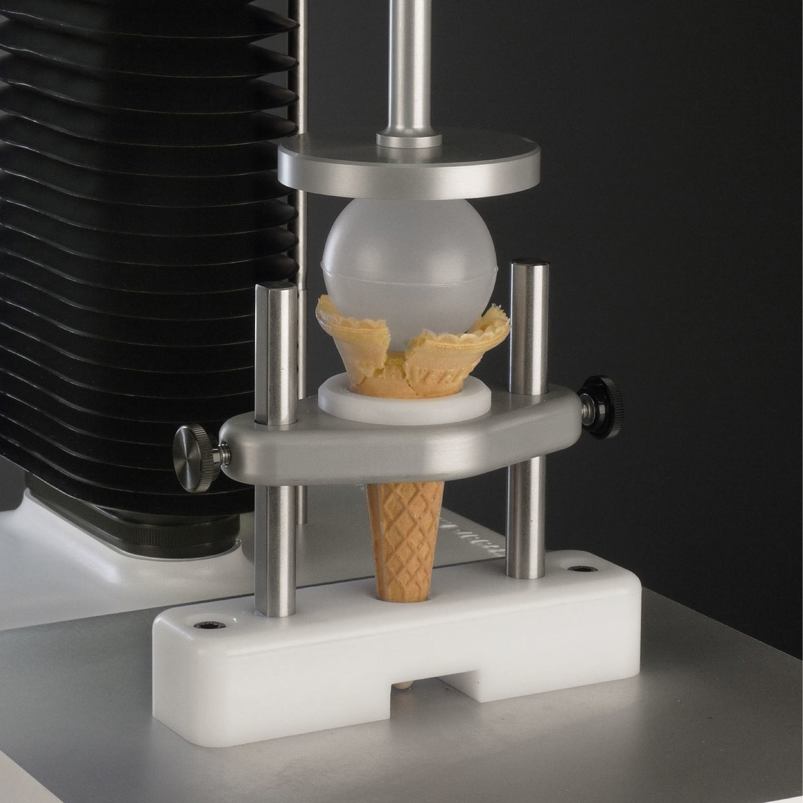Product overview
Ice cream remains a popular treat and a competitive sector, particularly during the summer season. As well as satisfying consumer demands for taste and texture, ice cream cone manufacturers should also consider the role of structural strength in the safe handling, shipping and distribution of cones. The Ice Cream Cone Rig is a valuable tool with which to assess textural characteristics of ice cream cones, helping manufacturers refine their batter recipes and tailor cone designs for ultimate taste and durability.
A cone strength test using the Ice Cream Cone Rig on a Texture Analyser measures the force required to cause breakage by simulating the stress imposed when ice cream is pressed into the cone by a ball-shaped object of specific diameter and weight using a compression platen whilst the cone is supported by the rig.
The distance the ball moves and the force required to break each cone is recorded alongside brittleness (the distance at the maximum force), toughness (area to the maximum force) and crispiness (number of fracture peaks occurring during the test) which are also measured as useful textural parameters. The resulting textural profile will highlight any weaknesses and consequent need to review ingredient proportions, formulation or cone dimensions.
The Ice Cream Support Rig can be adjusted to accommodate all cone varieties, including waffle, flat-bottomed and sugar cones, and is supplied with two ice cream scoop simulators for use with varying cone rim diameters.
How does the Ice Cream Cone Support Rig work?
Ideal sample form
Ice cream cones of various sizes.
Benefits and limitations
- Allows an imitative test to be performed
Technical information
Installation
Full installation instructions are provided within the Education Zone of the latest Exponent/Connect software version and on the technical information sheet accompanying this product.
Chemical compatibility
Stable Micro Systems probes and attachments are commonly made from four materials: anodised aluminium (AA6082 T6), stainless steel (316 T), Delrin (acetyl copolymer) and Perspex (polycarbonate).
In general use, probes and attachments made from these materials will be suitable for testing food products and inert non-food materials.
The four materials listed above are not universally resistant to all types of chemicals and as such the compatibility of the probe/attachment material with the product (to be tested) must be established to prevent damage to the probes and attachments. If the compatibility of the product with the probe is unknown to the customer then the chemical information about the product (Material Safety Data Sheet or Product Data Sheet) should be submitted to Stable Micro Systems. Stable Micro Systems will then assess the suitability of the probe/attachment material for use with the product and advise accordingly. If this advice is not sought then Stable Micro Systems will not accept liability for probes/attachments damaged by chemical attack from the product being tested.
Cleaning and maintenance
All probes and attachments may be cleaned in warm (or hand hot) water using a mild detergent. A soft brush may be used but abrasive cleaning aids should be avoided. Stable Micro Systems products should not be microwaved or cleaned in a dishwasher.
Screw threads should be lightly lubricated after drying using a light lubricant, e.g. petroleum jelly, mineral oil. This will aid the fitting and unscrewing of the item. Each component of a probe or attachment should be wrapped separately when stored, to avoid scratching or chipping. This will safeguard against any unnecessary damage to the accessory.



